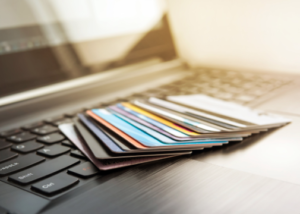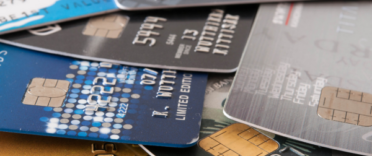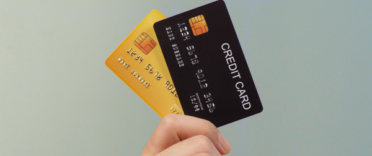
Should I use my credit card for everything?
The simple answer is no. Your credit card will be the best way to spend money in some situations, but not in others. A credit card can be a really useful financial tool if it is used in a way that benefits you. Unfortunately, it is easy to fall into common traps that can mean your card ends up costing you a hefty sum in unexpected fees and charges. In some cases, using a credit card in the wrong way can land you in serious debt and affect your chances of accessing loans and other credit cards in the future.
Here is a summary of when it is best to use a credit card or avoid using a credit card. You can find more information further down this page.
| To spread the cost of large purchases? | Yes |
| To earn rewards points and cashback? | Yes |
| To build your credit score? | Yes |
| To get consumer protection? | Yes |
| To save money on holiday? | Sometimes |
| If you are at risk of overspending? | No |
| To avoid interest charges and fees? | No |
| To use your card everywhere? | No |
How to find out which credit card is best for you
You can use Money to the Masses partner Creditec* to quickly build a list of the credit cards that match up with your needs. By simply adding in a few basic details, you will get a tailored collection of the best credit cards for you. You can use your Creditec results to check how likely you are to be accepted for a certain card, which cards available to you offer the best rewards or find out what option will leave you with the lowest fees to pay. Creditec is able to check your eligibility without running a full credit check, which means your credit score will not be affected. Click this link to start your comparison*.
When to use a credit card
Here are some of the best reasons to pay with a credit card.
To spread the cost of large purchases
‘Paying’ for a product or service with a credit card gives you the freedom to actually pay for it at a later date. The cost of what you buy is added to your credit card balance, which you will clear at a later date. You are effectively borrowing money and paying it back later. You could do this by clearing your card balance at the end of the month, or by steadily paying the debt back over several months. The second option will mean you pay interest on your debt, unless you have a 0% purchase credit card.
Check out our ‘Compare the Best 0% purchase credit cards’ page to learn more.
To earn rewards points and cashback
Certain credit cards allow you to effectively earn as you spend through cashback, rewards points or air miles. Every time you use your card, you receive a certain percentage of cashback, or a number of points or air miles. The more you use your card, the more you can earn. You can withdraw the cashback you have accumulated, spend the air miles on flights or upgrades, or convert your rewards points into anything from supermarket vouchers to holidays.
Rewards schemes can be rewarding, but they are fundamentally a tool used by providers to encourage you to use your credit card as much as possible. This means that if you do not clear your balance at the end of the month, or you spend more money in order to qualify for extra rewards, a rewards card could prove to be inefficient and pricey. Rewards cards rarely offer low interest rates, so you could find your balance grows pretty quickly if you do not clear it at the end of the month.
On the other hand, if you use your rewards credit card for purchases you would have made anyway and repay in full at the end of every month, these schemes can work for you. You could potentially earn cash or rewards without needing to do anything other than tap a different colour card.
Go to our ‘Compare the best rewards credit cards in the UK’ page to find the best deals.
To build your credit score
A great way to boost your credit score is by showing creditors that you can borrow money and pay it back in full and on time. This means that using a credit card for everyday purchases and paying it off at the end of the month can help you grow your credit score.
Your credit score is important because it is a reflection of how you are seen by potential lenders. A low credit score suggests you could be a risky person to lend money to, while a high credit score implies you can be relied upon to pay back what you borrow. This affects whether you will be successful in applying for a certain credit card and whether you can access the best deals available.
You can learn how to check your credit score by reading our article ‘The best way to check your credit score for free’. If you find out that it needs a boost, read our article ‘How to improve your credit score quickly’.
Head over to our page ‘Compare the best credit cards to build credit and improve bad credit’ to find the right card for you.
To save money on holiday
Spending money abroad using a debit card can involve exchange fees and foreign transaction fees. There are many credit cards that do not charge these fees and allow you to continue accessing the other benefits of using a credit card while you are outside the UK. This could allow you to earn rewards or cashback on your holiday spending, or spread the cost of your vacation bill over a longer period of time.
Keep in mind that some debit cards do not incur these charges, and even allow you to withdraw cash abroad for free. Check out our article ‘The best ways to take money abroad’ to learn more and find the best option for you.
Take a look at our ‘Compare the best travel credit cards’ page to find the best deals.
To get consumer protection
Credit card purchases are protected under Section 75 of the Consumer Credit Act. This means that using a credit card on payments of £100-£30,000 will give you a legal right to get your money back if you are sold faulty goods or services.
You may find section 75 protection useful if something you ordered and paid for does not arrive, or if a product you bought turns out to be faulty. It applies to every purchase of £100-£30,000 unless you have used hire purchase or a third party seller like Amazon Marketplace.
You can read more about Section 75 in our article ‘Section 75 Consumer Credit Act details’.
When not to use a credit card
Here are some of the reasons to avoid a credit card and look for a different way to pay.
If you are at risk of overspending
Using a credit card to make a purchase involves spending money you will need to repay later. If you have had a problem with debt in the past or you do not have the income to afford what you are buying, using a credit card is likely to be a mistake. With a debit card you can usually only spend the cash you have in your current account, unless your account includes an overdraft. A credit card can allow you to spend beyond that, depending on what your credit limit is.
Anyone who is already struggling with debt could benefit from avoiding using a credit card or applying for a new one until they get some independent debt advice. We have more information in our article ‘Where to get free debt advice’.
Instead of using a credit card, you could consider a prepaid card. This can be a useful budgeting tool and help you control your spending. Read more in our article ‘A complete guide to prepaid cards – which is the best for you?’.
Avoid interest charges and fees
Using a credit card can be expensive. Some credit cards will come with an annual or monthly fee, while most will charge you interest if you do not clear your balance at the end of the month.
If you think you may struggle to pay off your balance at the end of the month and you cannot get a 0% credit card, you may be better off choosing a different way to pay.
This is especially true if you plan to use a credit card to withdraw cash. Cash withdrawals with a credit card can be very expensive and are best avoided. However, they can be done indirectly using a money transfer credit card. Read more in our article ‘A complete guide to the best money-transfer credit cards’.
Your card is not accepted everywhere
Some retailers will not accept credit cards, or at least not all types of credit cards. Others will charge an additional credit card fee, require a high minimum spend or have no card-reading facilities. There are also products and services that you cannot pay for with a credit card, like most household bills.
It is important to think about how you plan to use your credit card before you apply for one. Read our article ‘Should I get a credit card?’ to learn more about what options are available to you.
If a link has an * beside it this means that it is an affiliated link. If you go via the link Money to the Masses may receive a small fee which helps keep Money to the Masses free to use. But as you can clearly see this has in no way influenced this independent and balanced review of the product.







